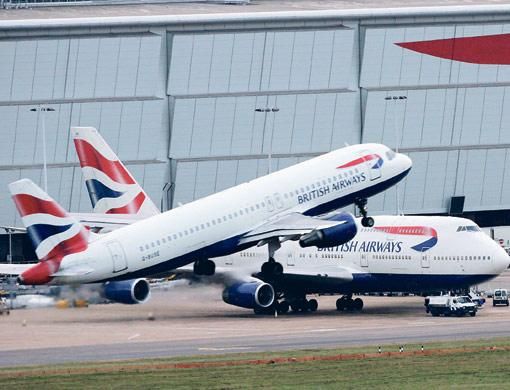London: American Airlines said the UK should break up the British Airports Authority's (BAA) monopoly over London airports including Heathrow and Gatwick because the services are so poor that carriers are shifting flights to other cities.
"The only thing worse than a public monopoly is a private monopoly,'' said Don Langford, managing director of services in Europe and India for American Airlines, which is owned by AMR Corp.
"Heathrow is so bad that we've shifted some capacity. There's peeling paint, missing lightbulbs, duct tape on the floor and all manner of poor housekeeping in our terminal.''
The comments at a Parliament hearing in London add to pressure on BAA as Britain's Competition Commission considers a forced breakup while the Civil Aviation Authority reviews the prices it charges to airlines.
Prime Minister Gordon Brown's government has joined City of London financiers and company executives in criticising BAA's stewardship of London airports after Grupo Ferrovial of Spain bought the company last year.
At a hearing of the House of Commons Transport Committee last week, British Airways and EasyJet also criticised BAA but stopped short of backing calls for a breakup. The committee of lawmakers started an inquiry in October and has the power to make recommendations to the government.
BAA, the world's biggest airport operator, defended its performance, saying it is struggling to cope with years of underinvestment.
"We have much to do in terms of improving our service, and we are making those improvements,'' BAA chief executive Officer Stephen Nelson told the committee. The company has cut waiting times at security checkpoints and is hiring more staff, he said.
British Airways, the big-gest user of Heathrow, is now "not sure'' whether BAA should be broken up, said Paul Ellis, general manager of infrastructure policy and economic regulation for the airline.
In December last year, British Airways said it welcomed the possibility of splitting up BAA.
"You have to react as the circumstances change. If that means that we have to change our position then that's the case,'' Ellis said. "There's clearly not enough teeth in the regulatory process at the moment.''
EasyJet spokesman Toby Nicol said BAA needs better regulation, not a break-up. The airport operator currently is allowed a regulated return on investment from its airports, meaning the more it spends the more profit it makes, Nicol said.
"It's allowed to just spend, spend, spend, and we have to pick up the bill,'' Nicol said at the hearing. BAA's profit margin is so big "that it would make Tutankhamen blush,'' he said.
Breaking up BAA's ownership would lead to "mini- monopolies,'' Nicol said, since the individual airports would still dominate their regions.
The Competition Commission said in August it will start an investigation into whether BAA's ownership of seven UK airports allows it to inflate charges while providing lower levels of service.











